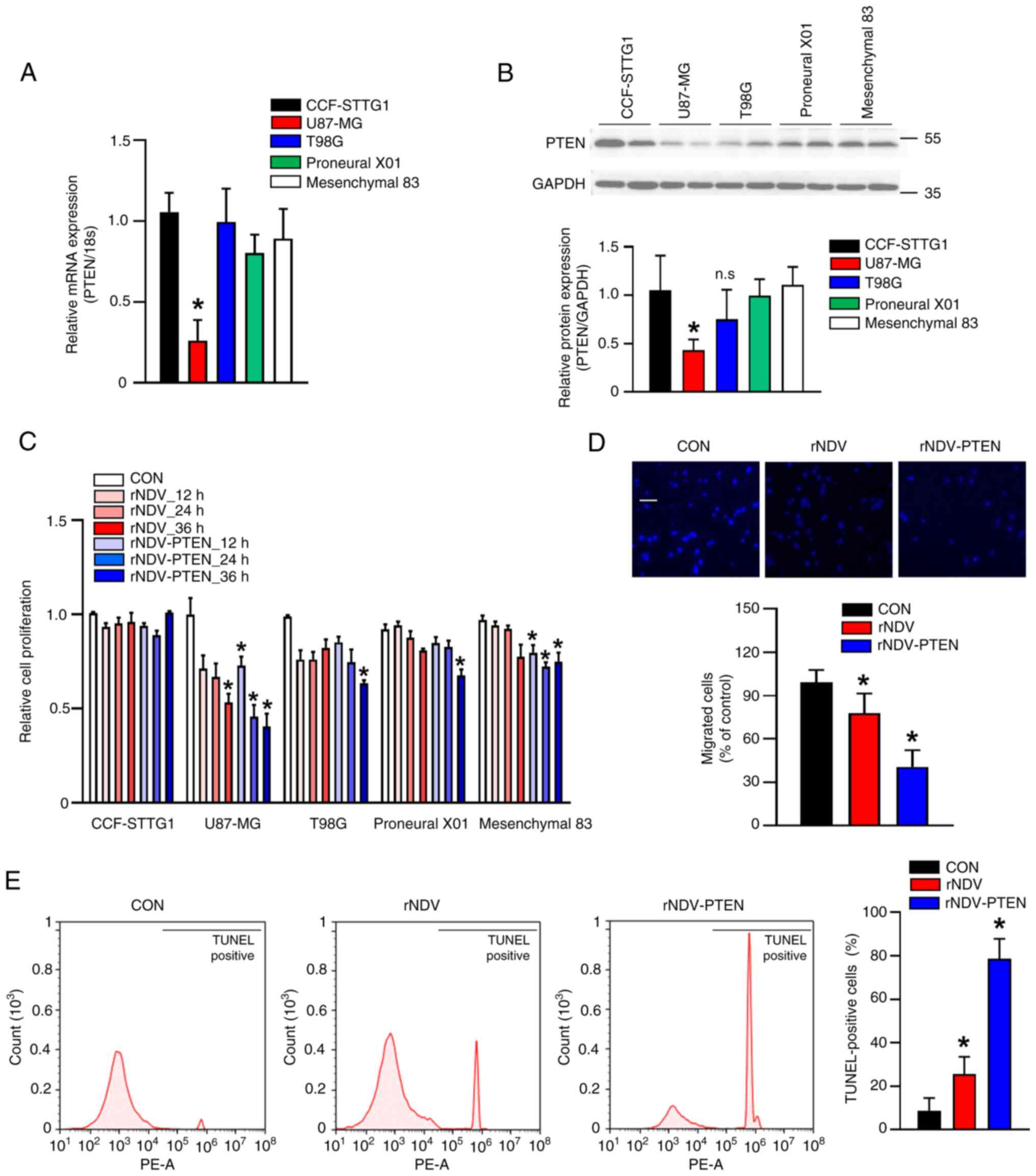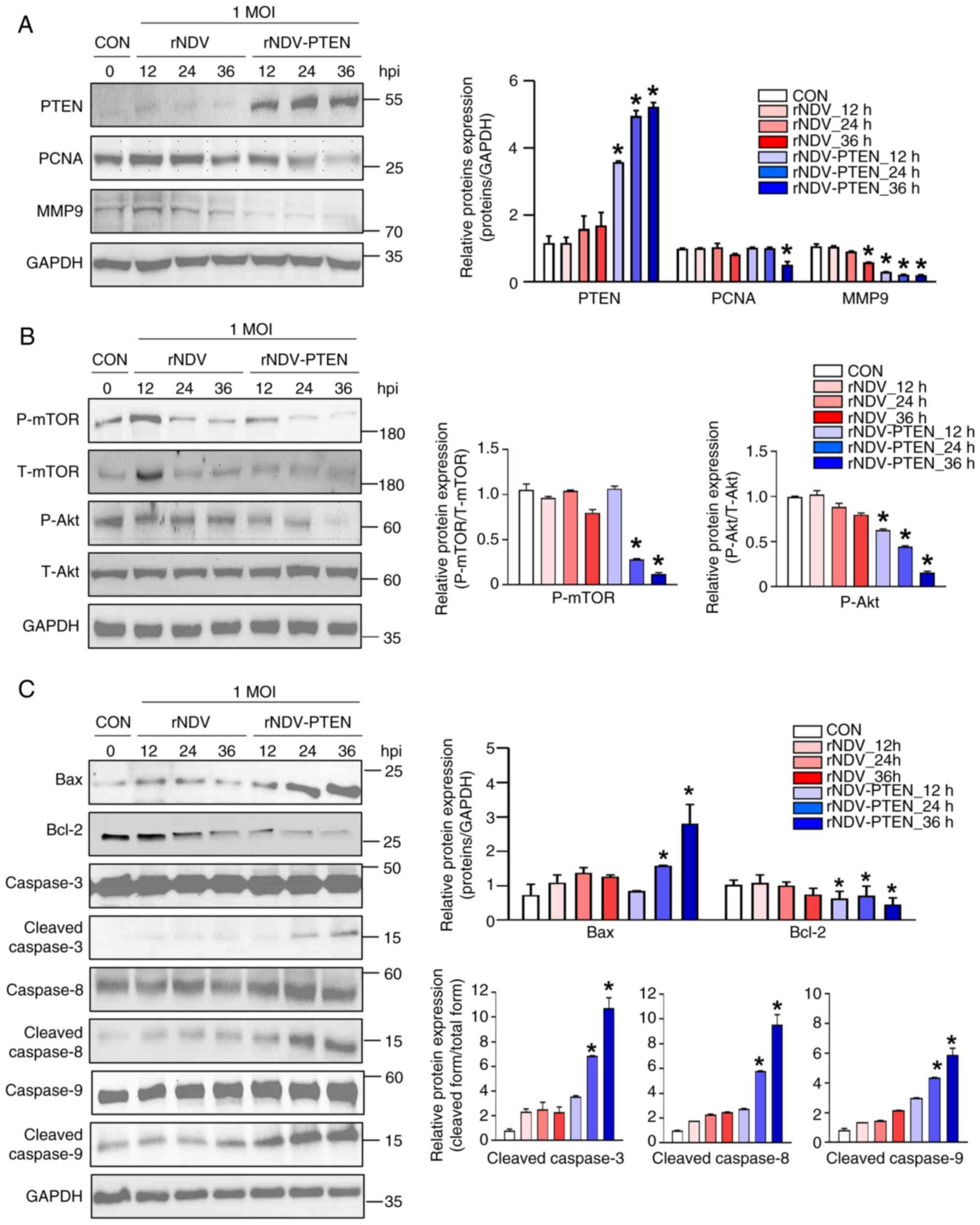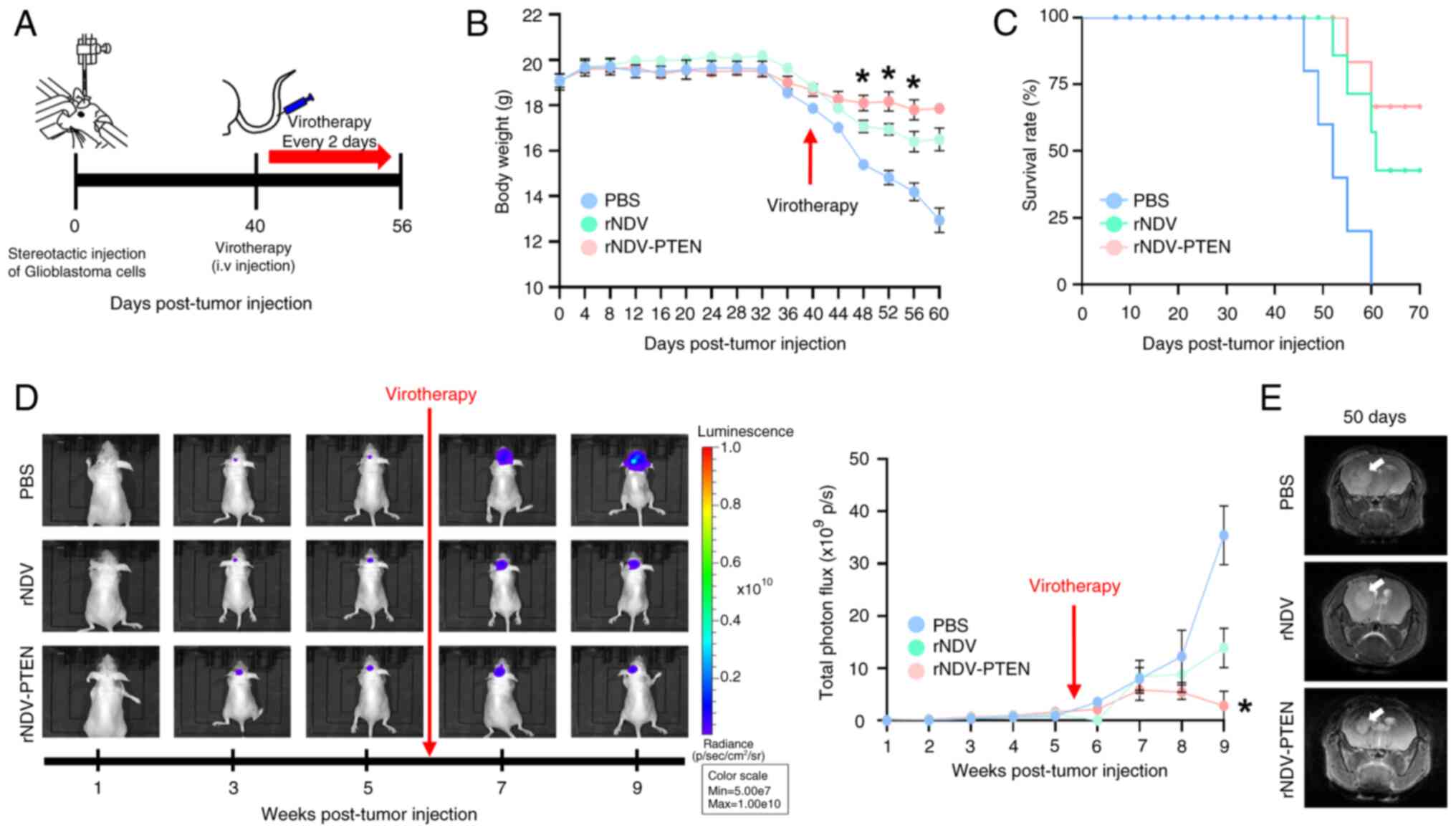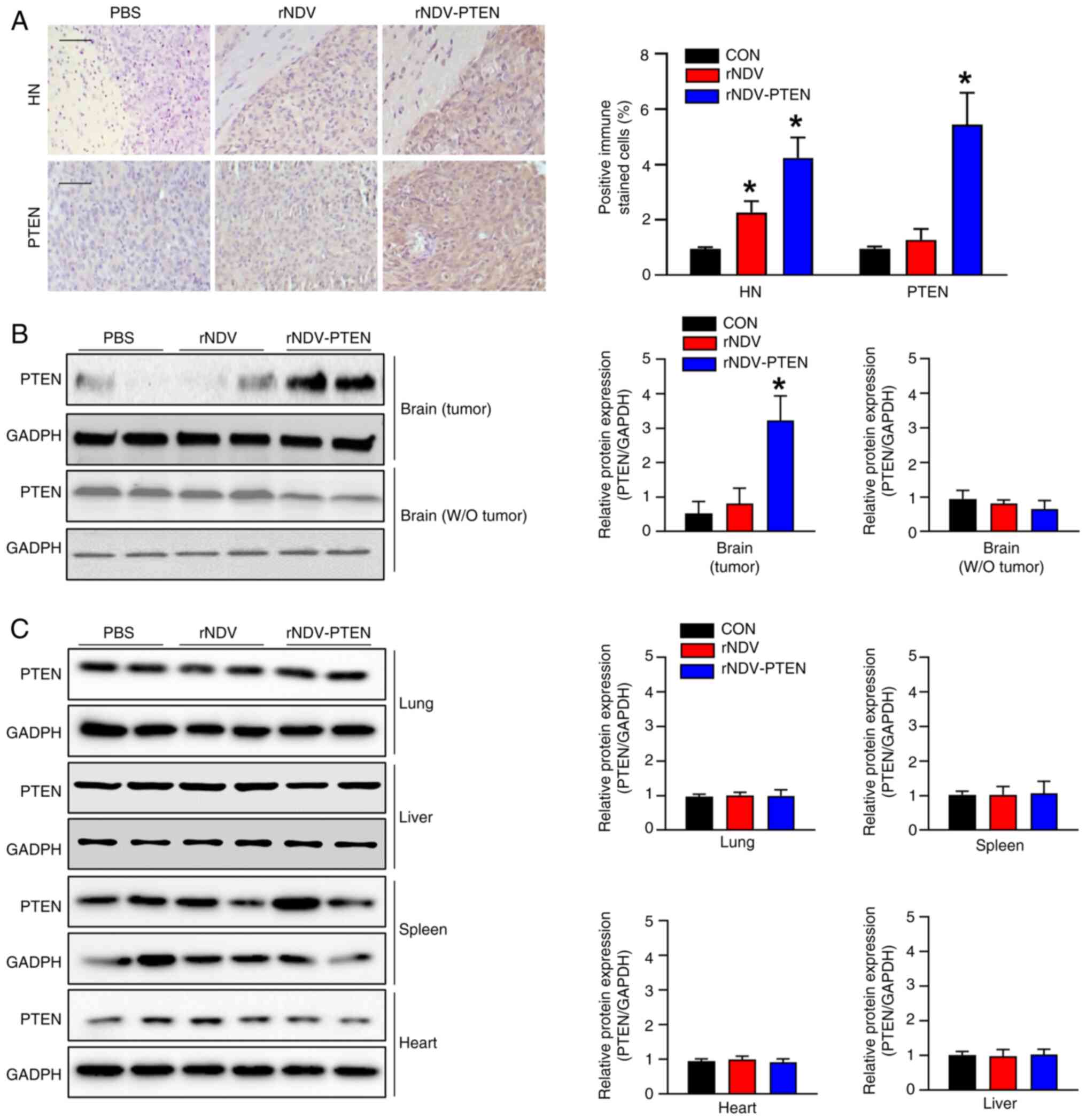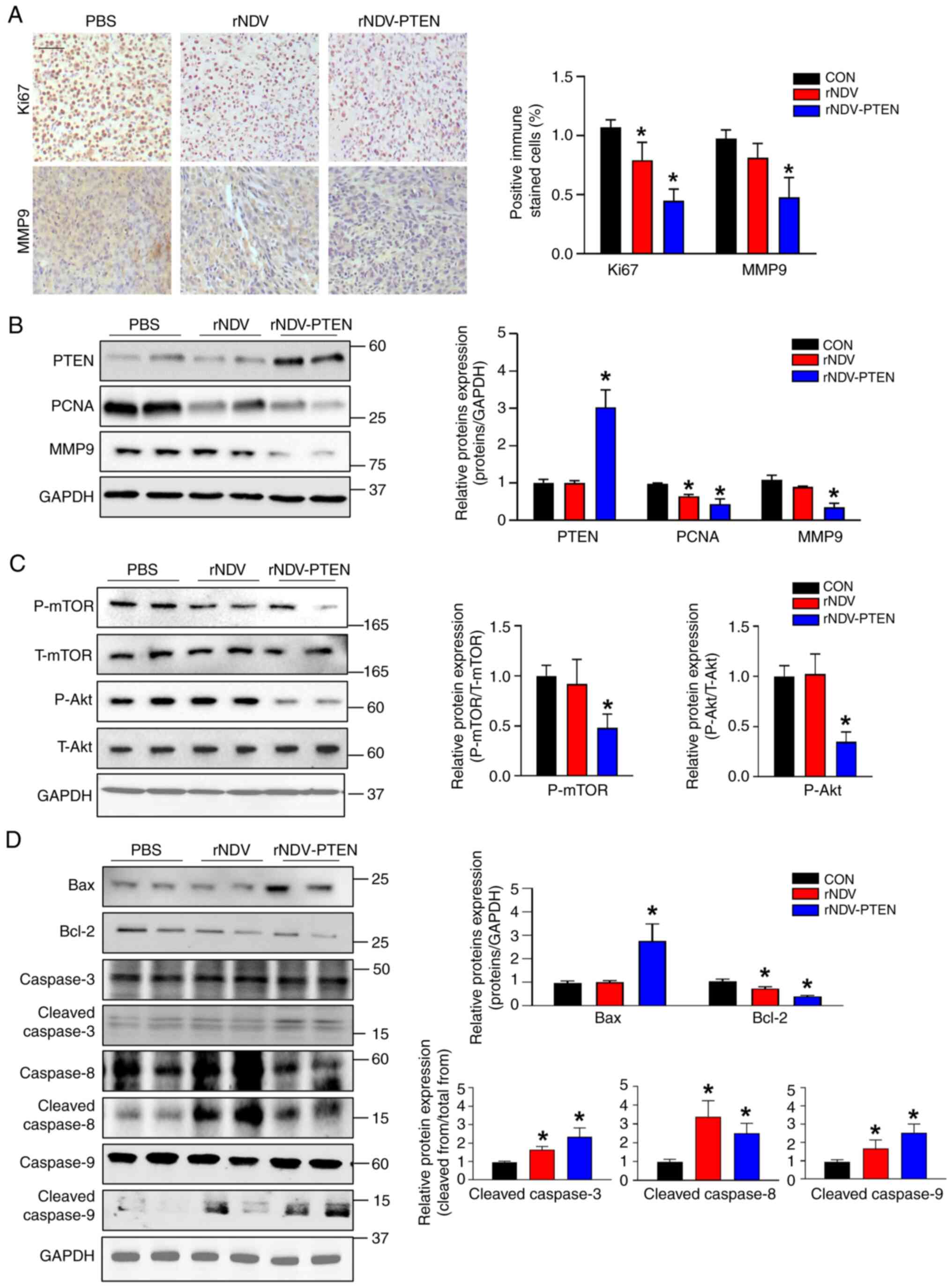|
1
|
Ostrom QT, Gittleman H, Fulop J, Liu M,
Blanda R, Kromer C, Wolinsky Y, Kruchko C and Barnholtz-Sloan JS:
CBTRUS statistical report: primary brain and central nervous system
tumors diagnosed in the United States in 2008–2012. Neuro Oncol. 17
(Suppl 4):iv1–iv62. 2015. View Article : Google Scholar
|
|
2
|
Nelson CP, Bloom DA, Kinast R, Wei JT and
Park JM: Long-term patient reported outcome and satisfaction after
oral mucosa graft urethroplasty for hypospadias. J Urol.
174:1075–1078. 2005. View Article : Google Scholar
|
|
3
|
Luchsinger JA: Type 2 diabetes, related
conditions, in relation and dementia: An opportunity for
prevention? J Alzheimers Dis. 20:723–736. 2010. View Article : Google Scholar
|
|
4
|
Koide S, Koide A and Lipovšek D:
Target-binding proteins based on the 10th human fibronectin type
III domain (10Fn3). Methods Enzymol. 503:135–156. 2012.
View Article : Google Scholar
|
|
5
|
Maehama T and Dixon JE: The tumor
suppressor, PTEN/MMAC1, dephosphorylates the lipid second
messenger, phosphatidylinositol 3,4,5-trisphosphate. J Biol Chem.
273:13375–13378. 1998. View Article : Google Scholar
|
|
6
|
Chen JK, Taipale J, Cooper MK and Beachy
PA: Inhibition of Hedgehog signaling by direct binding of
cyclopamine to Smoothened. Genes Dev. 16:2743–2748. 2002.
View Article : Google Scholar
|
|
7
|
Choi SW, Lee Y, Shin K, Koo H, Kim D, Sa
JK, Cho HJ, Shin HM, Lee SJ, Kim H, et al: Mutation-specific
non-canonical pathway of PTEN as a distinct therapeutic target for
glioblastoma. Cell Death Dis. 12:3742021. View Article : Google Scholar
|
|
8
|
Golovina VA and Blaustein MP: Spatially
and functionally distinct Ca2+ stores in sarcoplasmic and
endoplasmic reticulum. Science. 275:1643–1648. 1997. View Article : Google Scholar
|
|
9
|
van Noort J, Verbrugge S, Goosen N, Dekker
C and Dame RT: Dual architectural roles of HU: Formation of
flexible hinges and rigid filaments. Proc Natl Acad Sci USA.
101:6969–6974. 2004. View Article : Google Scholar
|
|
10
|
Chen C, Zhu S, Zhang X, Zhou T, Gu J, Xu
Y, Wan Q, Qi X, Chai Y, Liu X, et al: Targeting the synthetic
vulnerability of PTEN-deficient glioblastoma cells with MCL1
inhibitors. Mol Cancer Ther. 19:2001–2011. 2020. View Article : Google Scholar
|
|
11
|
Du L, Zhang Q, Li Y, Li T, Deng Q, Jia Y,
Lei K, Kan D, Xie F and Huang S: Research progress on the role of
PTEN deletion or mutation in the immune microenvironment of
glioblastoma. Front Oncol. 14:14095192024. View Article : Google Scholar
|
|
12
|
Chen H, Mei L, Zhou L, Shen X, Guo C,
Zheng Y, Zhu H, Zhu Y and Huang L: PTEN restoration and PIK3CB
knockdown synergistically suppress glioblastoma growth in vitro and
in xenografts. J Neurooncol. 104:155–167. 2011. View Article : Google Scholar
|
|
13
|
Chen Z, Varney ML, Backora MW, Cowan K,
Solheim JC, Talmadge JE and Singh RK: Down-regulation of vascular
endothelial cell growth factor-C expression using small interfering
RNA vectors in mammary tumors inhibits tumor lymphangiogenesis and
spontaneous metastasis and enhances survival. Cancer Res.
65:9004–9011. 2005. View Article : Google Scholar
|
|
14
|
Jiang K, Song C, Kong L, Hu L, Lin G, Ye
T, Yao G, Wang Y, Chen H, Cheng W, et al: Recombinant oncolytic
Newcastle disease virus displays antitumor activities in anaplastic
thyroid cancer cells. BMC Cancer. 18:7462018. View Article : Google Scholar
|
|
15
|
García-Romero N, Palacín-Aliana I,
Esteban-Rubio S, Madurga R, Rius-Rocabert S, Carrión-Navarro J,
Presa J, Cuadrado-Castano S, Sánchez-Gómez P, García-Sastre A, et
al: Newcastle disease virus (NDV) oncolytic activity in human
glioma tumors is dependent on CDKN2A-type I IFN gene cluster
codeletion. Cells. 9:14052020. View Article : Google Scholar
|
|
16
|
Burman B, Pesci G and Zamarin D: Newcastle
disease virus at the forefront of cancer immunotherapy. Cancers
(Basel). 12:35522020. View Article : Google Scholar
|
|
17
|
Csatary LK, Gosztonyi G, Szeberenyi J,
Fabian Z, Liszka V, Bodey B and Csatary CM: MTH-68/H oncolytic
viral treatment in human high-grade gliomas. J Neurooncol.
67:83–93. 2004. View Article : Google Scholar
|
|
18
|
Zhang L, Zhou L, Bao L, Liu J, Zhu H, Lv
Q, Liu R, Chen W, Tong W, Wei Q, et al: SARS-CoV-2 crosses the
blood-brain barrier accompanied with basement membrane disruption
without tight junctions alteration. Signal Transduct Target Ther.
6:3372021. View Article : Google Scholar
|
|
19
|
Abbott NJ, Rönnbäck L and Hansson E:
Astrocyte-endothelial interactions at the blood-brain barrier. Nat
Rev Neurosci. 7:41–53. 2006. View Article : Google Scholar
|
|
20
|
Jang SH, Jung BK, An YH and Jang H: The
phosphatase and tensin homolog gene inserted between NP and P gene
of recombinant New castle disease virus oncolytic effect test to
glioblastoma cell and xenograft mouse model. Virol J. 19:212022.
View Article : Google Scholar
|
|
21
|
Oka N, Soeda A, Inagaki A, Onodera M,
Maruyama H, Hara A, Kunisada T, Mori H and Iwama T: VEGF promotes
tumorigenesis and angiogenesis of human glioblastoma stem cells.
Biochem Biophys Res Commun. 360:553–559. 2007. View Article : Google Scholar
|
|
22
|
Mao P, Joshi K, Li J, Kim SH, Li P,
Santana-Santos L, Luthra S, Chandran UR, Beno PV, Smith L, et al:
Mesenchymal glioma stem cells are maintained by activated
glycolytic metabolism involving aldehyde dehydrogenase 1A3. Proc
Natl Acad Sci USA. 110:8644–8649. 2013. View Article : Google Scholar
|
|
23
|
Lin W, Niu R, Park SM, Zou Y, Kim SS, Xia
X, Xing S, Yang Q, Sun X, Yuan Z, et al: IGFBP5 is an ROR1 ligand
promoting glioblastoma invasion via ROR1/HER2-CREB signaling axis.
Nat Commun. 14:15782023. View Article : Google Scholar
|
|
24
|
Spearman C: The method of ‘right and wrong
cases’ (constant stimuli) without gauss's formula. Br J Psychol.
2:227–242. 1908.
|
|
25
|
Kärber G: Beitrag zur kollektiven
behandlung pharmakologischer reihenversuche. Naunyn Schmiedebergs
Arch Exp Pathol Pharmakol. 162:480–483. 1931. View Article : Google Scholar
|
|
26
|
Livak KJ and Schmittgen TD: Analysis of
relative gene expression data using real-time quantitative PCR and
the 2(−Delta Delta C(T)) method. Methods. 25:402–408. 2001.
View Article : Google Scholar
|
|
27
|
Raftery N and Stevenson NJ: Advances in
anti-viral immune defence: Revealing the importance of the IFN
JAK/STAT pathway. Cell Mol Life Sci. 74:2525–2535. 2017. View Article : Google Scholar
|
|
28
|
Zhou S, Wang H, Huang Y, Wu Y and Lin Z:
The global change of gene expression pattern caused by PTEN
mutation affects the prognosis of glioblastoma. Front Oncol.
12:9525212022. View Article : Google Scholar
|
|
29
|
Li Y, Liang Y, Sun Z, Xu K, Fan X, Li S,
Zhang Z, Jiang T, Liu X and Wang Y: Radiogenomic analysis of PTEN
mutation in glioblastoma using preoperative multi-parametric
magnetic resonance imaging. Neuroradiology. 61:1229–1237. 2019.
View Article : Google Scholar
|
|
30
|
Hernandez J, Bonnedahl J, Eliasson I,
Wallensten A, Comstedt P, Johansson A, Granholm S, Melhus A, Olsen
B and Drobni M: Globally disseminated human pathogenic Escherichia
coli of O25b-ST131 clone, harbouring blaCTX-M-15, found in
Glaucous-winged gull at remote Commander Islands, Russia. Environ
Microbiol Rep. 2:329–332. 2010. View Article : Google Scholar
|
|
31
|
Strzalka W and Ziemienowicz A:
Proliferating cell nuclear antigen (PCNA): A key factor in DNA
replication and cell cycle regulation. Ann Bot. 107:1127–1140.
2011. View Article : Google Scholar
|
|
32
|
Wilhelm SM, Collier IE, Marmer BL, Eisen
AZ, Grant GA and Goldberg GI: SV40-transformed human lung
fibroblasts secrete a 92-kDa type IV collagenase which is identical
to that secreted by normal human macrophages. J Biol Chem.
264:17213–17221. 1989. View Article : Google Scholar
|
|
33
|
Yang JM, Schiapparelli P, Nguyen HN,
Igarashi A, Zhang Q, Abbadi S, Amzel LM, Sesaki H,
Quiñones-Hinojosa A and Iijima M: Characterization of PTEN
mutations in brain cancer reveals that pten mono-ubiquitination
promotes protein stability and nuclear localization. Oncogene.
36:3673–3685. 2017. View Article : Google Scholar
|
|
34
|
Cheung M and Testa JR: Diverse mechanisms
of AKT pathway activation in human malignancy. Curr Cancer Drug
Targets. 13:234–244. 2013. View Article : Google Scholar
|
|
35
|
Fine HA: Radiotherapy plus adjuvant
temozolomide for the treatment of glioblastoma-a paradigm shift.
Nat Clin Pract Oncol. 2:334–335. 2005. View Article : Google Scholar
|
|
36
|
Colón-Thillet R, Jerome KR and Stone D:
Optimization of AAV vectors to target persistent viral reservoirs.
Virol J. 18:852021. View Article : Google Scholar
|
|
37
|
Ferguson MS, Lemoine NR and Wang Y:
Systemic delivery of oncolytic viruses: Hopes and hurdles. Adv
Virol. 2012:8056292012. View Article : Google Scholar
|
|
38
|
Belete TM: The current status of gene
therapy for the treatment of cancer. Biologics. 15:67–77. 2021.
|
|
39
|
Freeman AI, Zakay-Rones Z, Gomori JM,
Linetsky E, Rasooly L, Greenbaum E, Rozenman-Yair S, Panet A,
Libson E, Irving CS, et al: Phase I/II trial of intravenous NDV-HUJ
oncolytic virus in recurrent glioblastoma multiforme. Mol Ther.
13:221–228. 2006. View Article : Google Scholar
|
|
40
|
Lemos de Matos A, Franco LS and McFadden
G: Oncolytic viruses and the immune system: The dynamic duo. Mol
Ther Methods Clin Dev. 17:349–358. 2020. View Article : Google Scholar
|
|
41
|
Li X, Sun X, Wang B, Li Y and Tong J:
Oncolytic virus-based hepatocellular carcinoma treatment: Current
status, intravenous delivery strategies, and emerging combination
therapeutic solutions. Asian J Pharm Sci. 18:1007712023. View Article : Google Scholar
|
|
42
|
Lin D, Shen Y and Liang T: Oncolytic
virotherapy: Basic principles, recent advances and future
directions. Signal Transduct Target Ther. 8:1562023. View Article : Google Scholar
|
|
43
|
Zamarin D and Palese P: Oncolytic
Newcastle disease virus for cancer therapy: Old challenges and new
directions. Future Microbiol. 7:347–367. 2012. View Article : Google Scholar
|
|
44
|
Hashemi M, Etemad S, Rezaei S, Ziaolhagh
S, Rajabi R, Rahmanian P, Abdi S, Koohpar ZK, Rafiei R, Raei B, et
al: Progress in targeting PTEN/PI3K/Akt axis in glioblastoma
therapy: Revisiting molecular interactions. Biomed Pharmacother.
158:1142042023. View Article : Google Scholar
|
|
45
|
Zhang P, Meng X, Liu L, Li S, Li Y, Ali S,
Li S, Xiong J, Liu X, Li S, et al: Identification of the prognostic
signatures of glioma with different PTEN status. Front Oncol.
11:6333572021. View Article : Google Scholar
|
|
46
|
Fraser MM, Zhu X, Kwon CH, Uhlmann EJ,
Gutmann DH and Baker SJ: Pten loss causes hypertrophy and increased
proliferation of astrocytes in vivo. Cancer Res. 64:7773–7779.
2004. View Article : Google Scholar
|
|
47
|
Han F, Hu R, Yang H, Liu J, Sui J, Xiang
X, Wang F, Chu L and Song S: PTEN gene mutations correlate to poor
prognosis in glioma patients: A meta-analysis. Onco Targets Ther.
9:3485–3492. 2016.
|
|
48
|
Reichard KW, Lorence RM, Cascino CJ,
Peeples ME, Walter RJ, Fernando MB, Reyes HM and Greager JA:
Newcastle disease virus selectively kills human tumor cells. J Surg
Res. 52:448–453. 1992. View Article : Google Scholar
|
|
49
|
Islam MA, Xu Y, Tao W, Ubellacker JM, Lim
M, Aum D, Lee GY, Zhou K, Zope H, Yu M, et al: Author correction:
Restoration of tumour-growth suppression in vivo via systemic
nanoparticle-mediated delivery of PTEN mRNA. Nat Biomed Eng.
2:9682018. View Article : Google Scholar
|
|
50
|
Li Y, Zhang P, Qiu F, Chen L, Miao C, Li
J, Xiao W and Ma E: Inactivation of PI3K/Akt signaling mediates
proliferation inhibition and G2/M phase arrest induced by
andrographolide in human glioblastoma cells. Life Sci. 90:962–967.
2012. View Article : Google Scholar
|
|
51
|
Pardridge WM: Drug transport across the
blood-brain barrier. J Cereb Blood Flow Metab. 32:1959–1972. 2012.
View Article : Google Scholar
|
|
52
|
Vivanco I and Sawyers CL: The
phosphatidylinositol 3-kinase AKT pathway in human cancer. Nat Rev
Cancer. 2:489–501. 2002. View
Article : Google Scholar
|
|
53
|
Huang X, You L, Nepovimova E, Psotka M,
Malinak D, Valko M, Sivak L, Korabecny J, Heger Z, Adam V, et al:
Inhibitors of phosphoinositide 3-kinase (PI3K) and phosphoinositide
3-kinase-related protein kinase family (PIKK). J Enzyme Inhib Med
Chem. 38:22372092023. View Article : Google Scholar
|
|
54
|
Fruman DA, Chiu H, Hopkins BD, Bagrodia S,
Cantley LC and Abraham RT: The PI3K pathway in human disease. Cell.
170:605–635. 2017. View Article : Google Scholar
|
|
55
|
Kilkenny C, Browne WJ, Cuthi I, Emerson M
and Altman DG: Improving bioscience research reporting: The ARRIVE
guidelines for reporting animal research. Vet Clin Pathol.
41:27–31. 2012. View Article : Google Scholar
|















